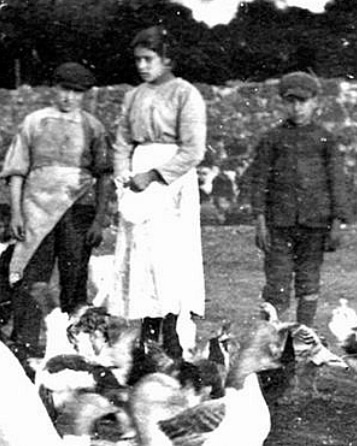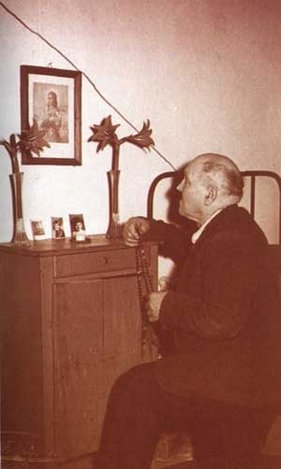 St. Maria Goretti 5 months before she was murdered.
St. Maria Goretti 5 months before she was murdered. Maria Goretti witnessed to purity, which is a foreign concept to most of us who live under the dictatorship of the “sexual revolution.” In fact, the imposed gender ideologies of our time have all but outlawed sexual purity. The source of all purity, and our only hope of regaining our bodily integrity, is the Body of Christ. But the Eucharist is divine. One must prepare oneself to receive so powerful a remedy, lest it’s very power harm us. If one receives the Eucharist impurely, he “eats and drinks condemnation unto himself,” as St. Paul says in 1 Corinthians 11:29.
There is significant confusion in the Church today on who may or may not receive Holy Communion. Bishops have issued contradicting instructions to their priests. We hope that the supreme teaching authority of the Church will bring clarity and unity to our divided Church. It is my duty as a simple priest, however, to teach the people entrusted to my pastoral care what leads to life and what leads to death.
 Alessandro Serenelli, St. Mariea Goretti's converted murderer
Alessandro Serenelli, St. Mariea Goretti's converted murderer Recently, Illinois Bishop Thomas Paprocki instructed his priests to withhold Holy Communion from Catholics living in so-called “gay marriages.” He did so “given the objectively immoral nature of the relationships”. He is right. The Church’s official catechism teaches that:
- “Basing itself on Sacred Scripture, which presents homosexual acts as acts of grave depravity, tradition has always declared that "homosexual acts are intrinsically disordered." They are contrary to the natural law. They close the sexual act to the gift of life. They do not proceed from a genuine affective and sexual complementarity. Under no circumstances can they be approved” (emphasis added). CCC #2357
Some with ecclesiastical authority, in their effort to be charitable, welcome those living in grave sin to Holy Communion. I do not question their good intentions, but we must remember, as Robert Cardinal Sarah recently wrote, that “we cannot be more compassionate or merciful than Jesus. He told the woman caught in adultery two equally important messages: ‘Neither do I condemn you;’ and ‘go, and do not sin again’ (Jn 8:11).”
The Church gives us her Canon Law and Catechism as a sure guide to Christian living, that we may be happy in this life and eternally happy in the next. I ask my parishioners to look to the following for guidance (emphasis added):
- Code of Canon Law #916: “A person who is conscious of grave sin is not to … receive the body of the Lord without previous sacramental confession.”
- Catechism of the Catholic Church #1857: “For a sin to be mortal, three conditions must together be met: "Mortal sin is sin whose object is grave matter and which is also committed with full knowledge and deliberate consent."”
- Code of Canon Law #915: “Those who have been excommunicated … and others obstinately persevering in manifest grave sin are not to be admitted to Holy Communion.”
The Lord Jesus himself demanded much of his disciples, such as love for one’s enemies, lifelong fidelity for one’s spouse, rejection of even lustful thoughts, and above all reception of His Body and Blood. He lost many disciples by insisting on these teachings, most notably over the doctrine of the Eucharist (John 6). As Christ would not compromise these truths, and as St. Maria Goretti would not compromise her bodily integrity, so may we today not compromise what alone can lead men and women to happiness in this life, and perfect joy in the next.


 RSS Feed
RSS Feed